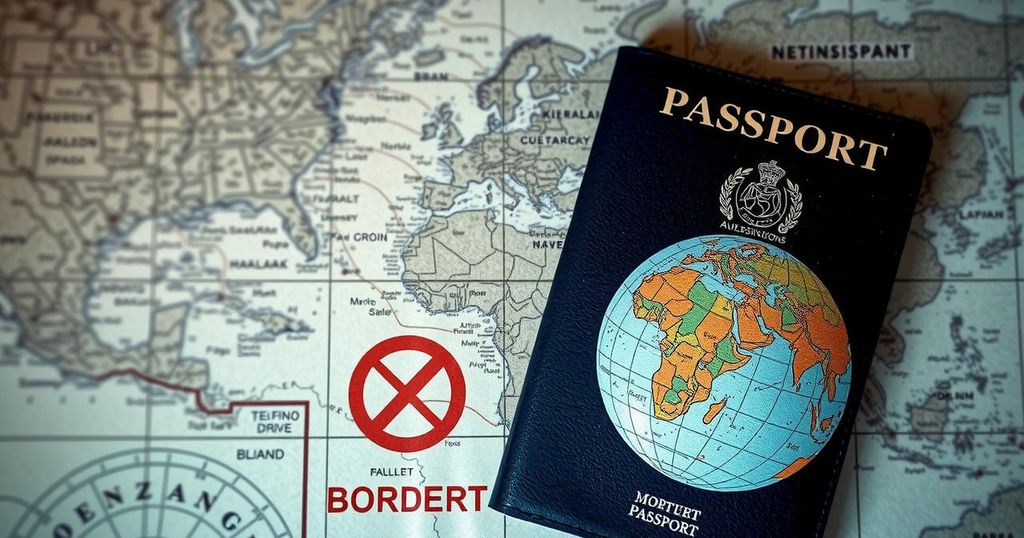Concerns Rise Over Potential Reinstatement of Travel Ban Targeting Muslim Countries

Civil rights groups in the U.S. are alarmed by President Trump’s executive order that could reinstate a travel ban on nations such as Iran, Iraq, Syria, Libya, Sudan, Somalia, and Yemen. Advocacy organizations are responding with support initiatives, while concerns around discrimination and constitutional rights are rising due to lack of clarity from the White House.
Civil rights organizations in the United States have expressed alarm following President Donald Trump’s recent executive order, which may pave the way for a reinstated travel ban affecting several nations, including Iran, Iraq, Syria, Libya, Sudan, Somalia, and Yemen. Advocates argue that such a ban would disproportionately target Muslim and Arab-majority countries, reinforcing negative stereotypes and compromising constitutional protections. As tensions escalate, these nations are now facing increased scrutiny amid fears of discrimination.
The executive order, signed on January 20, has ignited concerns among civil rights groups who are apprehensive that it could facilitate revived travel restrictions on individuals from Muslim-majority countries. This anticipated policy raises significant questions regarding potential discrimination based on religion and ethnicity, raising alarms within the affected communities.
In light of the rising concerns, advocacy organizations have established a 24-hour hotline to provide immediate assistance for travelers who may encounter difficulties due to the executive order. This initiative aims to support individuals navigating this precarious situation, serving as a critical resource amid uncertainty.
Despite numerous inquiries from the media and civil rights advocates, the White House has failed to provide clarity on the executive order’s stipulations. This lack of transparency exacerbates worries among advocates and the public regarding the order’s implications and the direction of U.S. immigration policy.
The American-Arab Anti-Discrimination Committee (ADC) is actively engaged in monitoring the executive order. Abed Ayoub, the ADC’s national executive director, confirmed the organization’s efforts to assess its legal options, with a decision on a possible court challenge expected soon. This situation echoes past governmental actions perceived as targeting Muslim communities, igniting a renewed debate on national security versus individual rights.
Numerous civil rights organizations have implored the administration to consider the broader consequences of its policies. They highlight the necessity of ensuring that no ethnic or religious group is targeted unfairly, advocating for the preservation of constitutional principles of equality and non-discrimination.
As developments unfold, civil rights advocates, impacted communities, and legal professionals are attentively observing potential impacts. The contemplated reinstatement of a travel ban has sparked an urgent discourse regarding the essential balance between securing national interests and safeguarding fundamental rights.
The article discusses the ramifications of President Trump’s executive order, particularly its potential to reinstate a travel ban that may target specific Muslim-majority countries. This topic is significant as it touches on issues of civil rights, discrimination, and the ongoing debate regarding national security versus personal freedoms in the context of U.S. immigration policy. Historical precedents of travel bans under the Trump administration further illuminate the urgency and sensitivity surrounding this issue.
In conclusion, the announcement of President Trump’s executive order has rekindled fears of a reinstated travel ban impacting countries with Muslim majorities. Civil rights organizations have mobilized to provide support and raise awareness about potential discrimination. The situation remains dynamic, with advocacy groups urging transparency and fairness in U.S. immigration policy while working to ensure that constitutional rights are upheld for all individuals, regardless of their background.
Original Source: www.travelandtourworld.com








